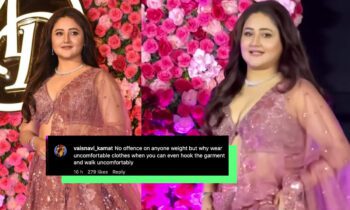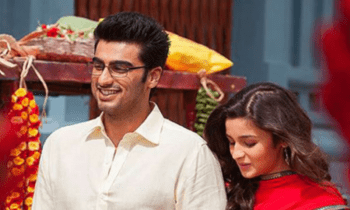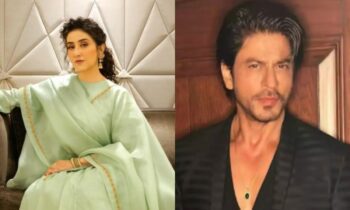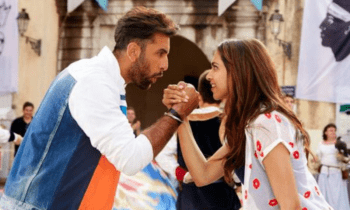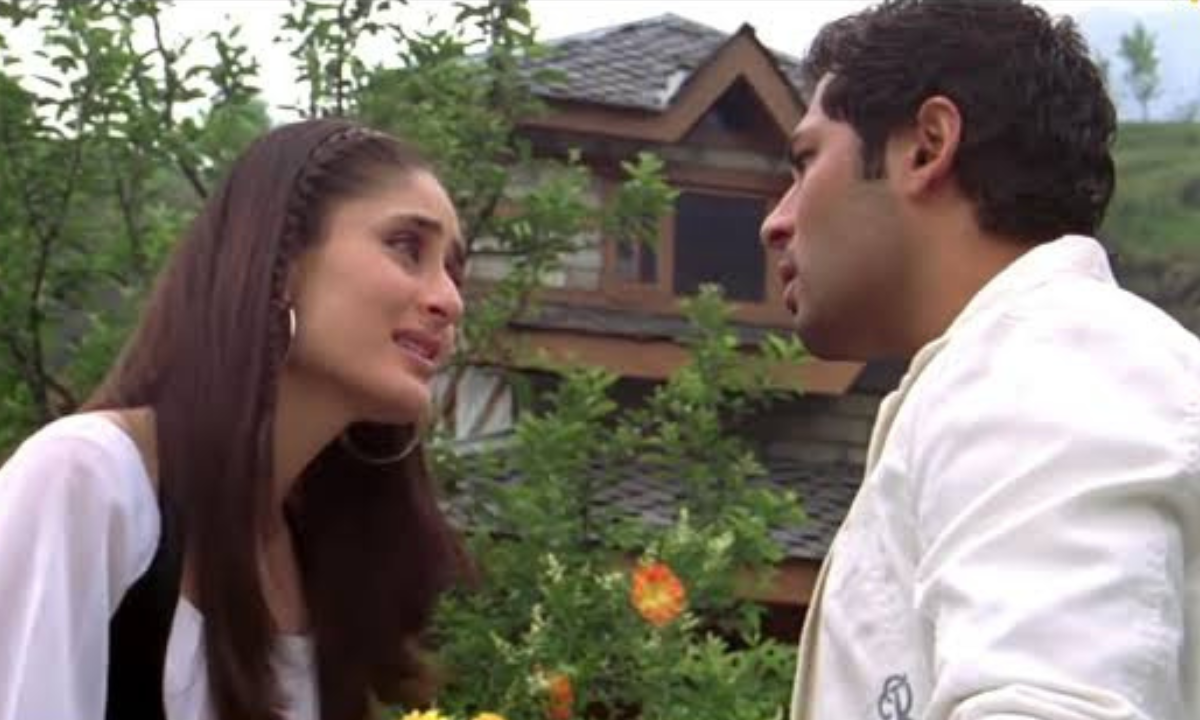Gunjan Saxena: The Kargil Girl Is A War Film Alright, But With A Very Different Flightpath. And It Nails The Landing.
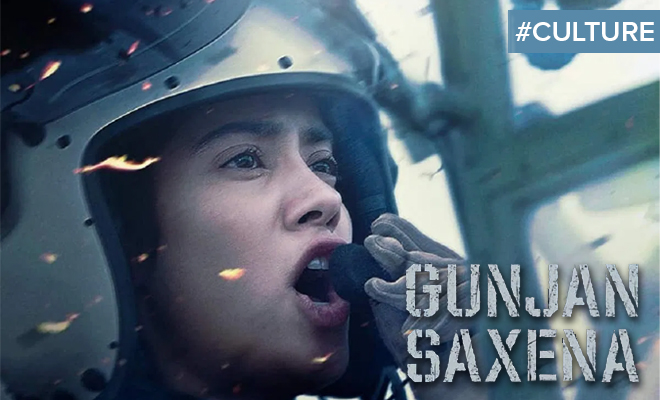
Two biopics on sheroes—Shakuntala Devi, starring Vidya Balan, and Gunjan Saxena: The Kargil Girl, starring Janhvi Kapoor—releasing within a fortnight of each other? Careful, Bollywood, your progressive side is showing! Alright, I won’t sass. I’ll give credit where credit is due. Let it be known that our misogynistic movie industry, which has so far been a reluctant student of Feminism 101, has finally decided to put aside its bias and pursue it as both a passionate and, possibly, lucrative career option. It took them a while to get it Raazi for this; there was some Panga initially. Even needed a solid Thappad to really shake it awake. But here we are. Sharan Sharma’s directorial debut—which had to change its flightplan from the big screen to Netflix—is the story of Indian Air Force’s first female combat pilot who saved nearly a 1000 lives during the Kargil War—Flight Lieutenant Gunjan Saxena.
To me, Gunjan Saxena: The Kargil Girl didn’t feel like a biopic (not a fan of those); it felt more like an inspired story that takes some creative liberties, which is what the makers intended it to be. The film stars Janhvi Kapoor as Gunjan Saxena, a casting choice that got complained about since she’s a one-film old Bollywood insider. It also stars Pankaj Tripathi, Ayesha Raza Mishra, Angad Bedi, Viineet Kumar and Manav Vij in pivotal roles. It is co-written by Sharma, who previously assisted in movies like Yeh Jawaani Hai Deewani, and Nikhil Mehrotra, who also wrote Chhichhore and Dangal.
Also Read: #Voices: Vidya Balan Starrer ‘Shakuntala Devi’ Highlights How We Rarely See Our Mothers As Women With Their Own Hopes, Dreams And Imperfections
Plot
The story begins with a young Gunjan discovering her passion for the skies, which is met with resistance from her Dada (elder brother) who won’t let her look out the window of their airplane. Luckily, an air hostess comes to her rescue and helps a fellow sis out by taking her to meet the pilots in the cockpit. And that is the origin story of Gunjan Saxena, the girl who goes on to become the first female combat pilot of the IAF to go to war, thereby shattering glass ceilings that tried to keep her kind from soaring high in the sky. But clearly, this journey hasn’t been an easy one until the end, because the actual film begins with a scene from the Kargil war, where Gunjan is chosen by her commanding officer because there are no men left for the mission.
The movie is then in retrospect, taking us back 15 years and showing us how Gunjan learns to walk, run and eventually soar, supported only by her capabilities, and wearing a parachute made out of her father’s belief that she can be whoever she wants to be. We see Gunjan make a deal with her father—she finishes her education and then pursues becoming a pilot. Her father supports her, mostly unconditionally, even as her mother and brother (who eventually joins the army like their father) are reluctant to let Gunjan digress so much from the traditional roles of Indian girls. But her father supports her through it all, even nudging her towards joining the IAF when commercial flying is not an option.
Gunjan is worried; she just wants to fly planes. But wouldn’t joining the IAF require a Sunny Deol-from-Border like patriotism? But her father nonchalantly reminds her that she could always be Border‘s Jackie Shroff, who just flew his plane and did his job well. (Not in these very words, but oh well, watch the film!)
https://www.instagram.com/p/CDvQoPSFit4/?utm_source=ig_web_copy_link
A major chunk of the movie is devoted to Gunjan Saxena’s time at her posting at the Udhampur airbase, where she encounters rampant sexism, and a denial of the very thing she has come there to do because of her gender. But the girl’s got gumption and most importantly, she’s got talent that is fuelled from years of passion and determination. This is her dream, and she ain’t letting it go so easily. And even if she does, her Pop’s around to get her back on the flight plan.
You’d think there aren’t speed bumps in the sky, but there’s air traffic. After hovering a lot, Gunjan Saxena finally flies into Kargil, and that’s where she gets to do what she does best. Fly, in every way.
Also Read: ‘Raat Akeli Hai’ Lacks Thrill, But Is Still A Good Mystery And A Commentary On How Patriarchy Breeds Toxic Femininity
Gunjan Saxena is a film about a war, but not the one you think.
When you think of war movies, there’s a preconceived notion that pops up in your mind. Think mucky, bloody, with loud background score and suspenseful music, and a lot of dark/green colour palettes. I am so happy to announce that Gunjan Saxena is none of that pish-posh. Why? Because contrary to what the title will have you believe, this isn’t the story that features the Kargil war in prominence. But it is about a war alright. A war that every woman who wants to be something more than her gender must fight, against the patriarchy, against a rigged system and sometimes against her own loved ones.
https://www.instagram.com/p/CDqO2qSJ0oO/?utm_source=ig_web_copy_link
In the first half, you think you’re following Gunjan’s origin story, which in the second half will give way to the Kargil War, where she shows her heroics (or sheroics). But the second half comes and goes and you realise there’s none of that claustrophobic jingoism with elaborate dialogues, displays of blood-ridden machismo and war-ravaged scenery. Instead, the stunning beauty of Kargil Valley is at display, with cinematographer Manush Nandan giving us a very human view (from a pilot’s perspective) of what the outskirts of a war zone would look like. It’s serene in a way, like how you’d expect the skies to be, until shots/missiles are fired. The music too, whether it is the songs that are threaded through the film without seeming like interruptions (that Rekha song is epic!), or the background score, is never overpowering. In a way, they resemble Gunjan’s persona so well.
Quite different than a war film, if you ask me. But then again, this is a different kind of film. When in hindsight, I realised the clues were always there, I considered myself successfully debriefed!
Also Read: #Voices: No, Granting Period Leaves To Women Employees Isn’t Sexist And Won’t Hurt Equality. Here’s Why.
Performances that tug at your heartstrings; A screenplay that grows on you
https://www.instagram.com/p/CDWAbJ-l2mZ/?utm_source=ig_web_copy_link
I know that Janhvi Kapoor has been getting a lot of flak for being chosen for this role despite being a film old. But when I recalled her stint in Netflix’s Ghost Stories, I was kind of believed she could play this character. And she didn’t disappoint. What I love most about how she played Gunjan and how her character was written, is that there was no extra drama to hide her femininity or make her look more heroic, like a male hero would. I don’t know if the real Gunjan Saxena, who even now flies for the IAF, was this way IRL. But Janhvi’s Gunjan is exactly like a little girl who is ready to fly, but unaware of the hurdles that the world has laid out for her. Whether in sadness or jubilation, Janhvi’s performance felt measured and full of conviction. I think in one scene, where she looks out the bus window, she reminded me so much of her mother, the late Sridevi, with her expression of childish excitement.
Viineet Kumar is gradually becoming a favourite of mine (and apparently, Netflix’s too). Again, I am so, so glad the writers didn’t write him as a typical alpha male army man. In fact, he actually appears like a stern but approachable chap to most of his male subordinates. Which is why Gunjan can’t understand for a long time why he is a certain way with her and so free with her male counterparts. Angad Bedi, Manav Vij and Ayesha Raza Mishra play their parts quite well too. Especially Bedi as the protective (but not overly) elder brother feels so close to home. I’d like to think he’s secretly thrilled to be proven wrong by his sister as she succeeds, but he worries about her because she’s flying without a safety net. And I guess, I kinda get that?
https://www.instagram.com/p/CDvQ7TVlA65/?utm_source=ig_web_copy_link
But all my love and salutes go out to Pankaj Tripathi, who made me want to jump through my screen and give him a hug. His character is the father you wish your father was 24/7, and he infuses it with so much love, I couldn’t control my emotions in every scene he was in. He has the best dialogues, and by that, I don’t mean pompous declarations and melodramatic motivational speeches. Pankaj Tripathi’s gift is using his words and silences in equal measure, a subtle nod here, a gentle smile there. And we get to see that a lot in the film; when he is trying to pacify his wife, or not engage his son’s sexism or when he is trying to reinstill his daughter’s faith in her dream. Mind you, he’s an army man to0, but there’s a gentleness and wisdom about him that is so refreshing in Bollywood fathers! Pankaj sir, raising our standards in men like…
https://www.instagram.com/tv/CDlY1VNA0Yj/?utm_source=ig_web_copy_link
There’s a scene where he tells Gunjan about how he raised her to not be confined to cages. And I think that scene needs to be flashed on national television between regressive serials with the frequency of those Zoozoo ads between IPL.
5 takeaways from Gunjan Saxena: The Kargil Girl
1. A war film doesn’t have to be a WAR film.
Just like 1917. There has to be a human perspective to it because the real carnage and damage of war can never be experienced unless you’re actually in the war zone. So can we do more of these people stories, please, minus the gore, loud sounds and forced patriotism? Also, more female war heroes. I feel like those stories have double the struggle.
2. We often talk about progressive mothers raising progressive sons. Can we also talk about what progressive fathers can do for their daughters?
https://www.instagram.com/p/CDWBZSOJakU/?utm_source=ig_web_copy_link
Looking at how regressive men still are, it feels unreal to imagine that a father like Gunjan’s would’ve existed back then. But Gunjan Saxena is real, so I would like to believe there are fathers who support their daughters through everything. There’s something about that bond, right? The first man in a girl’s life, telling her that he treats her like a person full of infinite possibilities but also keeps her grounded without resorting to gender stereotypes. That can change a woman on such a profound level, and she can grow up to be unafraid.
3. A woman who wants to fight a male-dominated system does not need to shed her soft-spoken, feminine self.
The arm-wrestling scene in the film is a nice reminder that women don’t have to give up their femininity, or basically change themselves in any way, to fit into male-dominated roles and professions.
4. I’ve always wondered whether women tell women’s stories better. I might be rethinking it now.
Director Sharan Sharma and writer Nikhil Mehrotra have done a decent job of telling Gunjan Saxena’s story without making it look like they missed a step anywhere, or overcompensated for being men talking about a woman.
5. We need to stop putting women in cages in the name of protection. That doesn’t fly anymore.
For as long as we can remember, women have always been thought of as needing protection because they’re the ‘weaker’ sex. That’s great, guys. Thanks. But somewhere, this protection transmuted into the rigid bars of a cage that inhibit them from fully developing as human beings with individualistic hopes, dreams, ambitions and talents. Maybe Gunjan guessed correct in that scene where she has an outburst before the male officers. Maybe these cages exist because men are afraid whether their egos can survive bowing down to a woman. But she was also right when she said that it doesn’t always have to be a competition, between genders, right? Can it not just be about capabilities?
https://www.instagram.com/tv/CDgsxJIpTXO/?utm_source=ig_web_copy_link
Men are from Mars. Women are from Venus. But they’re both trying to make it on Earth, which needs to provide equal footing to both. How tall they both grow and how high they soar depends entirely on their abilities and what they imbibe from the resources they’re given.
Verdict: Please don’t let the nepotism debate ruin this movie for you
I know people (rallied by KRK for some reason?!) think that not watching or trashing Gunjan Saxena: The Kargil Girl because it is headlined by a star kid and produced by Karan Johar’s Dharma Productions is doing right by Sushant Singh Rajput. The movie has so many lessons that we need to learn, told beautifully, and performed well by its actors. Actors in plural because it is not just about one star kid or a nepotism-endorsing producer. Go watch the movie with your family, and let it show you a better way of doing things when it comes to raising our daughters, supporting our sisters, and uplifting the women in our lives.





